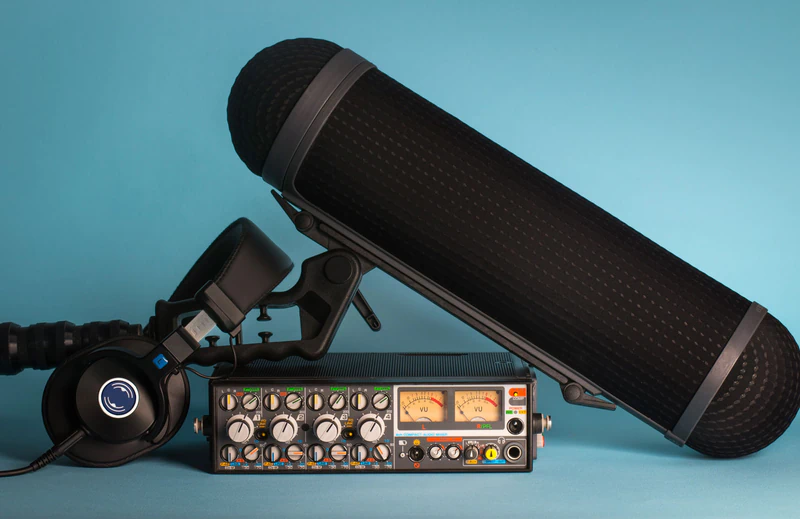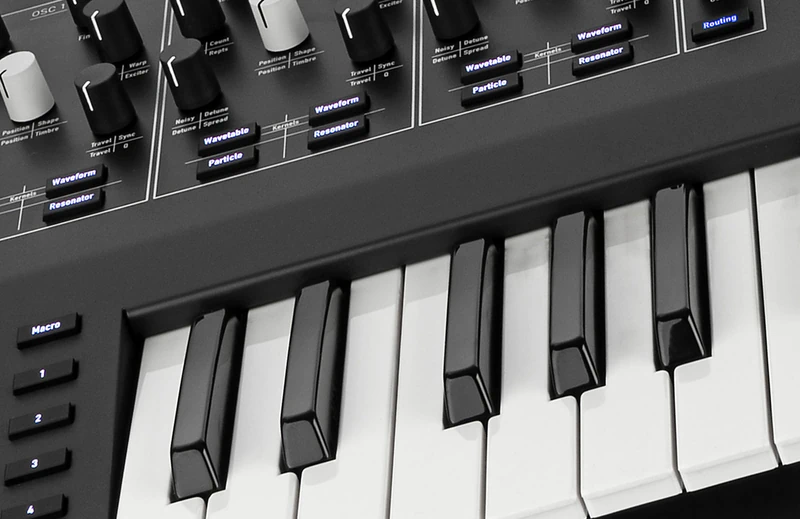Discover the fascinating world of sound effects and how they’ve been used to captivate audiences for decades. Explore our comprehensive guide to sound effects !
Sound effects are an essential part of any audio or video production. They help to create a realistic and immersive experience for the listener or viewer.
From movies and television shows to video games and podcasts, sound effects add depth, realism, and emotion to many forms of visual content. In this article, we will explore everything you need to know about sound effects, from their history to their modern-day use, as well as the different types of SFX, their uses, and the impact they have on different forms of media.

What exactly are sound effects
Sound effects refer to artificially created or recorded sounds that are used to create or enhance the audio experience in various forms of media ( movies and video games, documentaries, radio… ).
They are most often used to complement visual elements and evoke specific emotions or reactions from the audience. Sound effects can range from everyday sounds like footsteps and door creaks to fantastical sounds like laser beams and explosions.
History of sound effects
Sound effects have been used in entertainment for over a century. In the early days of cinema, sound effects were created live on set using various objects and techniques. These included using coconut shells to simulate horse hooves, or dropping metal objects to create the sound of thunder.
As technology advanced, sound effects became more sophisticated. In the 1920s, sound engineers began using pre-recorded sound effects on vinyl records. These records could be played alongside the film to create a more immersive experience.
In the 1970s, the use of electronic sound effects became more prevalent. This was due to the development of electronic synthesizers and samplers. These devices allowed sound engineers to create and manipulate sounds in new and exciting ways.
The importance of sound effects in media

Sound effects are vital in movies and video games, and in many other types of media because they create a sense of realism and immersion. They help to transport the audience into the world being depicted and make the experience more engaging.
For example, in a horror movie, the eerie sound effects can heighten the suspense and make the audience feel a sense of unease. In an action-packed video game, impactful sound effects can make the gameplay more thrilling and immersive.
Types of sound effects
There are many different types of sound effects, each with their own unique purpose. Some of the most common types of sound effects include :
1. Foley sound effects
Foley sound effects are created by recording everyday sounds, such as footsteps or door creaks. These sounds are then synced with the action on screen to create a more realistic experience.
2. Ambient or environmental SFX
Environmental or ambient sound effects are recordings of ambient noises found in different environments. Ambient sound effects are generally used to create a sense of atmosphere or mood. These can include sounds such as birds chirping or waves crashing.
3. Sci-fi sound effects
Science fiction sound effects are often used in futuristic or otherworldly settings. They include sounds like laser blasts, spaceship engines, and alien noises. These effects are essential in creating a futuristic or alien atmosphere in sci-fi films and games.
4. Interface sound effects
Interface sound effects are commonly found in video games and user interfaces. They include sounds like button clicks, menu selections, and notifications. Interface sound effects provide audio feedback to users, making interactions more intuitive and engaging.
How to make sound effects ?

Sound effects can be created through various methods. Let's explore a few of the common techniques !
1. Foley artistry
Foley artists use a variety of props and surfaces to recreate sounds that match the visuals. They may use objects like shoes on different surfaces to create footsteps or crumple paper to mimic the sound of fire. The art of Foley requires skill and creativity to produce convincing and accurate sound effects.
2. Digital sound libraries
With advancements in technology, digital sound libraries have become popular among sound designers. These libraries contain a vast collection of pre-recorded sound effects that can be easily accessed and incorporated into media projects. Designers can search for specific sounds or browse through categories to find the perfect effect for their needs.
3. Recording real-world sounds
Sound designers often venture into the real world to capture unique and authentic sounds. They may use specialized microphones and recording equipment to capture sounds like thunderstorms, animal calls, or vehicle engines. Recording real-world sounds allows for a more organic and customized audio experience.
Sound effects in movies and television
In the realm of movies and television, sound effects are used to enhance storytelling, create atmosphere, and heighten emotions. Movie sound effects can range from subtle ambient sounds to intense explosions and fight sequences. Sound designers work closely with filmmakers to ensure that the audio complements the visuals and delivers an immersive experience for the audience.
Sound effects in video games
In video games, sound effects play a crucial role in gameplay immersion and player feedback. They provide auditory cues for actions, events, and interactions within the game world. From the sound of footsteps signaling an approaching enemy to the satisfying "ping" of collecting a power-up, video game sound effects enhance the overall gaming experience.
Sound effects in podcasts
While podcasts primarily rely on spoken words, sound effects can be used to create a more engaging listening experience. They can be used to emphasize certain moments, create transitions, or add comedic elements. Thoughtfully placed sound effects can help to evoke emotions and make the podcast more dynamic and entertaining.
The role of sound designers
Sound designers are responsible for creating and implementing sound effects in various forms of media. They collaborate closely with directors, game developers, or podcast hosts to understand their vision and bring it to life through sound. Sound designers need a keen ear, technical skills, and a deep understanding of storytelling to craft audio experiences that enhance the overall content.
The future of sound effects

As technology continues to advance, the possibilities for sound effects are expanding. Virtual reality ( VR ) and augmented reality ( AR ) technologies offer new avenues for immersive soundscapes.
Additionally, advancements in artificial intelligence and machine learning may revolutionize sound design by automating certain aspects of the process. The future of sound effects holds exciting prospects for even more realistic and interactive audio experiences.
The essential role of sound design
Sound effects are an essential part of any audio or video production. They help to create a realistic and immersive experience for the listener or viewer. From their humble beginnings as live sound effects on movie sets to the modern-day use of surround sound and adaptive sound, sound effects have come a long way. As technology continues to advance, it will be exciting to see how sound effects continue to evolve and enhance our entertainment experiences.
Sound designers play a vital role in creating and implementing these effects, ensuring that they align with the vision of the creators. As technology continues to advance, sound effects are poised to evolve further, opening up new possibilities for captivating audio experiences.
FAQs ( Frequently Asked Questions )
Q1 : Can I use sound effects in my own projects ?
Yes, you can use sound effects in your own projects. There are numerous online platforms and libraries like Bluezone Corporation where you can find both free sound effects and paid sound effects for various purposes.
Q2 : How do sound effects enhance storytelling ?
Sound effects help to create a more immersive and engaging storytelling experience by adding depth, realism, and emotional impact. They can evoke specific moods, highlight important moments, and enhance the overall atmosphere of a scene.
Q3 : Are sound effects only used in entertainment media ?
While sound effects are most commonly associated with entertainment media like movies, TV shows, and video games, they can also be used in other contexts. For example, sound effects are employed in educational videos, presentations, and even some forms of advertising to enhance the messaging and engage the audience.
Q4 : Can I create my own sound effects ?
Absolutely ! With the right tools and resources, you can create your own sound effects. Experiment with everyday objects, record sounds from your surroundings, or explore digital sound editing software to craft unique and personalized effects.
Q5 : How can sound effects contribute to the success of a project ?
Well-executed sound effects can significantly enhance the overall quality of a project and leave a lasting impression on the audience. They can make the experience more immersive, evoke emotional responses, and elevate the overall production value of the content.






